Are you wondering where a LIDo PhD would take you? Here are some simple stats to give you an idea!
For their first career destination about 43% of our alumni stay in Academia, whilst 47% go to roles in the private sector. LIDo's comprehensive suite of careers events and support empower students with the knowledge and networks to support their professional decisions, whilst our robust interdisciplinary training provides the agility to transition to new sectors.
The majority of our alumni continue in a research or engineering based role following graduation but through our established internship scheme many have been exposed to alternative roles where the extensive transferrable skills developed during a PhD in a world class DTP programme are highly sought.
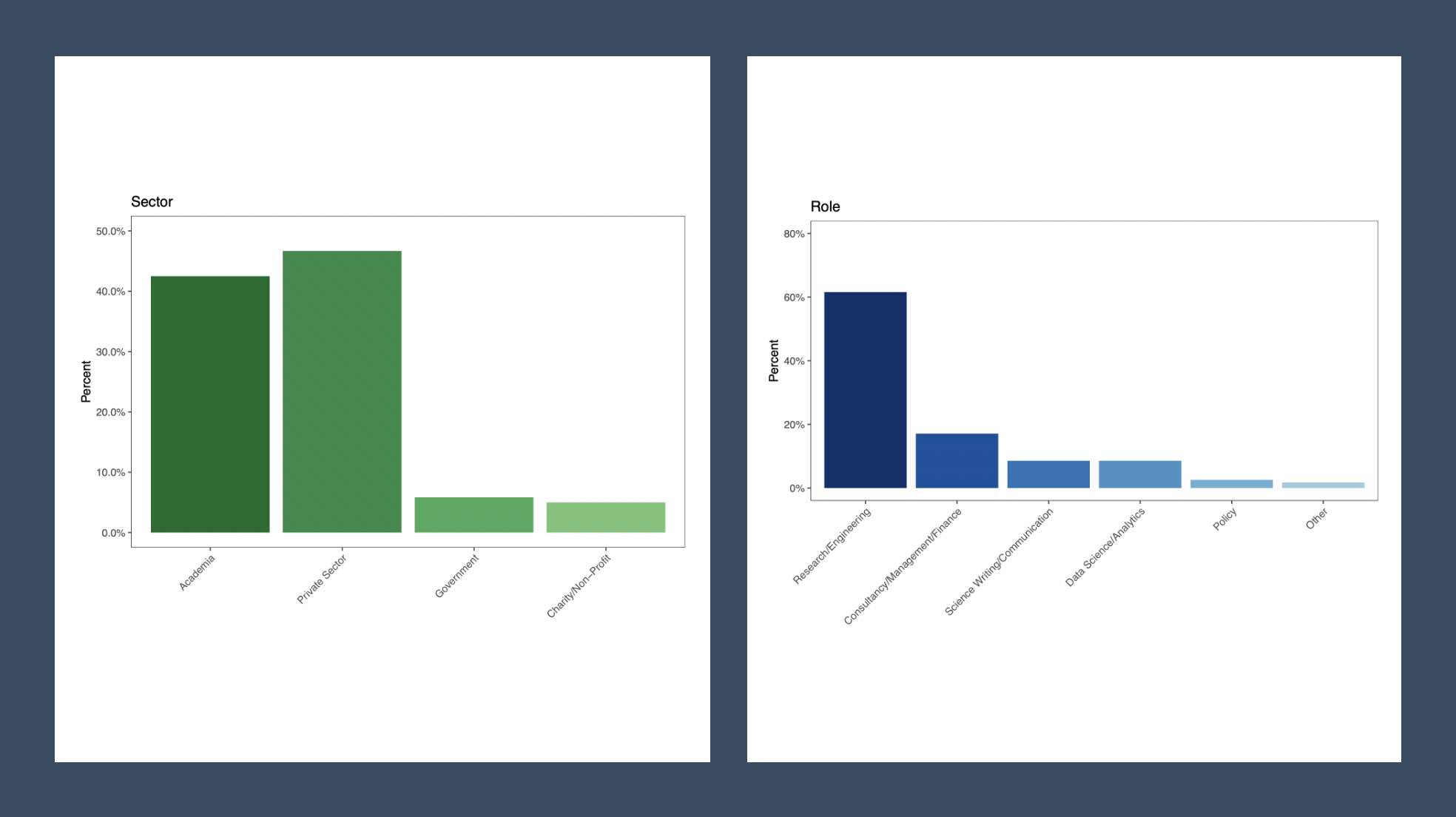
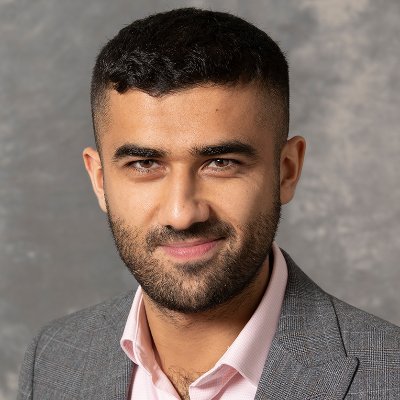
What is your current position?
My current position is as a research fellow in statistical systems biology at UCL.
Describe a little about your role
In my role, I am working on deep learning research in the area of cancer genomics. I am particularly interested in the design of neural networks to uncover mutational processes from structural variation in the cancer genome, using copy number variation data.
Briefly describe your journey from LIDo graduation to your current position.
After completing my PhD in molecular dynamics and quantum simulations, I was eager to apply my skills and knowledge to a new field. I was particularly interested in the intersection of deep learning and cancer genomics, and saw the opportunity to work in this field at UCL as the perfect next step for me.
What do you love most about your job?
One of the things I love most about my job is the independence that comes with being a research fellow. I have the freedom to pursue my own research interests and projects, which is both challenging and rewarding.
What parts of the LIDo programme had the strongest impact on you and your career?
During my time in the LIDo programme, I was fortunate to be surrounded by scientists from many different disciplines, which had a strong impact on me and my career. This exposure to different fields and perspectives helped me to develop a more holistic view of science and the scientific process, and gave me the confidence to tackle some of the fundamental questions I researched in my PhD.
Share your best LIDo memory
One of my best memories from LIDo was being forced to go to Stoke every year. Despite the long journey, it was always a lot of fun and provided a great opportunity to bond with my fellow PhD students and build a sense of community.
What advice would you offer to current/future LIDo PhD students?
My advice to current and future LIDo PhD students would be to think about the skills that will benefit your academic or industry career from early on in your PhD. Use the resources and opportunities available through LIDo, such as research funding, to train yourself in these skills, so that you will be a more employable and well-rounded individual when you complete your PhD.
What comes next for you?
As for what comes next for me, I am not entirely sure. I am currently focused on my research and continuing to make progress in the field of cancer genomics and deep learning. However, I am open to new opportunities and am excited to see where my career takes me in the future.
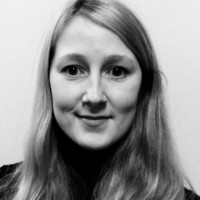
What is your current position?
Senior Formulation Scientist at FabRx
Describe a little about your role
My main role is to incorporate drugs into 3D printable materials for 3D printed personalised medicines, and to characterise these materials ready for clinical trials.
Briefly describe your journey from LIDo graduation to your current position
I applied for the FTMA internship scheme and completed my 3 months as a R&D chemist at Notpla, a biodegradable materials company in the packaging industry. I then applied to permanent positions around London and with the help of my industry placement at Notpla, started my new role at FabRx.
What do you love most about your job?
At the moment I love how small the company is, there are less than 10 employees. I have only just started so I am looking forward to starting lab work very soon.
What parts of the LIDo programme had the strongest impact on you and your career?
The additional opportunities they give you (training, internship schemes, career days etc), as well as the support of a PhD network outside of your lab group.
Share your best LIDo memory
Christmas socials were very fun!
What advice would you offer to current/future LIDo PhD students?
Choose your rotations carefully and make sure to speak to multiple current or ex-lab members, somewhere where their supervisor cannot over hear you!
What comes next for you?
I’d like to stay at FabRx for the foreseeable future and help the business grow.
Is there anything else you’d like to tell us?
Whenever someone asks me about doing a PhD I always highly recommend doing a PhD programme, you get a lot of welcome additional support both mentalling and with your career. The LIDo programme and management team have helped me massively and I could not be happier with my experiences with them.

What is your current position?
I am currently undertaking an FTMA placement at Sixfold Bioscience. My official title is: Student Placement Researcher, but in reality I fulfil the same role as a research scientist as the other post-doc level employees.
Describe a little about your role
Sixfold is a start-up so my role is not particularly well defined and I float at little in the middle. Primarily I work as a bionanotechnologist designing nanostructures and performing biophysical analysis and characterisation. However, I have also worked with the chemistry/manufacturing team to assist with purification of samples as well as with the biology team to develop and validate a qPCR based-detection method.
Briefly describe your journey from LIDo graduation to your current position
I first made contact with Sixfold at the 2018 Breakthroughs in Healthcare Technologies Conference organized by LIDo and the MRC, of which I was on the organizing committee. I kept in touch with the company over the years and so once the FTMA placements were offered, they were a natural choice for me to contact for a placement.
What do you love most about your job?
I love the fact that I am using my research to develop and produce cutting-edge therapeutics for real world impact.
What parts of the LIDo programme had the strongest impact on you and your career?
The interdisciplinary nature of the LIDo programme has really been key for me. A key part of research is learning to work with collaborators, but LIDo’s focus on interdisciplinary work has not only prepared me to work with people from different disciplines, but it has also provided me with background knowledge and understanding that I wouldn’t have had without this programme. The key benefit of LIDo in this regard is creating so many excellent opportunities to be exposed to a large variety of research across wide-disciplines on multiple occasions each year.
Another key part is the people that you meet on the programme. LIDo takes in a wide-variety of people, but all exceptionally qualified. That diversity is a true strength of LIDo and helps to make it a much more enjoyable process than it might have been. Through all of the many activities and events organized by LIDo, there is a sense of community that can really be a life-line when the PhD gets difficult.
Share your best LIDo memory
My best LIDo memory was probably the first night of the retreat at the end of my 1st year/start of my 2nd year. With the courses having ended I didn’t get to see other LIDo members as often and it was a chance to get to see everyone again. That night in particular we played biology charades, which despite my total lack of biology knowledge, I still have fun memories of. It was just a great fun night of getting to know people.
What advice would you offer to current/future LIDo PhD students?
As general advice for a PhD is to go into it with no illusions. It can and will be a difficult process at times. Keeping/developing a good work/life balance from the start is very important. There will be days where you will have to put in long hours, but that doesn’t need to be the case every day or over the weekend in order to achieve a PhD.
For LIDo PhD students in particular, my advice would be to make sure you take advantage of all that LIDo has to offer. You are incredibly lucky to be on such a great programme and it will really help make your PhD something special and can be an incredible resource during and after your PhD. Go to all of the events, get to know your cohort and the ones above/below.
What comes next for you?
I will be starting a new role as a research scientist at Oxford Nanopore Technologies in Oxford starting in August 2021.
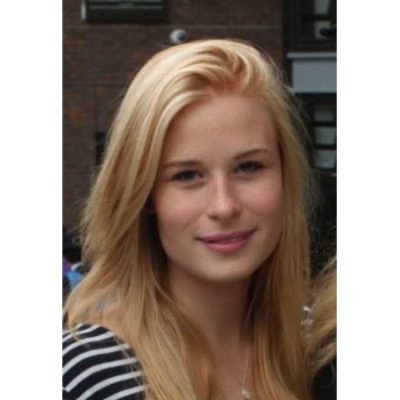
What is your current position?
QSP intern at Certara
Describe a little about your role
For my main project, the role involves validation and optimisation of a human PBPK model which was used to model a novel monoclonal antibody treatment for the treatment of Parkinson’s disease. This involves the use of clinical data from recent human clinical trials to optimise the model’s ability to predict antibody-target binding and the pharmacokinetics of the antibody treatment.
Briefly describe your journey from LIDo graduation to your current position
I applied and completed the FTMA Internship scheme
What do you love most about your job?
I enjoy working as part of a very international team and working for a company that aims to improve trial outcomes.
What parts of the LIDo programme had the strongest impact on you and your career?
The opportunity to complete two internship placements (one during and one just after the PhD) really helped me understand what kind of roles I would be interested in pursuing career wise and also helped to improve my CV.
Share your best LIDo memory.
I have very fond memories of the LIDO retreats in September – a great place to hear about fellow LIDo student’s research and also catch up and network with friends.
What advice would you offer to current/future LIDo PhD students?
Make maximum use of the extra-curricular opportunities that are presented to you – try to block out time in the schedule just for this. I found it difficult at times due to the lab work commitments, but if I had more time I would have focused on this.
What comes next for you?
I am considering taking up a full time position at Certara where I completed my internship and am potentially considering R&D consulting positions.

What is your current position?
Innovation and Business Development Director at the Stevenage Bioscience Catalyst (SBC). We are located at the heart of the largest cell therapy cluster in Europe and Asia. We have GSK right next door, LifeArc is one of our occupiers and several high-profile companies like Autolus, Freeline and Achilles Therapeutics.
Describe a little about your role.
I oversee bringing new start-ups and companies to SBC. I also look after the companies that we have on campus by putting them in contact with the relevant people, getting them funding opportunities and creating relevant events for them. Lastly, I am currently building an accelerator programme for early-stage start-ups at the pre-seed to seed stage.
Briefly describe your journey from LIDo graduation to your current position.
After my LIDo graduation, I applied for the BBSRC Flexible Talent Mobility Account (FTMA) programme with a consulting company, Revena, I got to know through my PhD. Through Revena, I did technical due diligence for early-stage start-ups at a well known accelerator in London. During my time there, I applied for a grant via which I received £35,000 to spend talking and pitching my biotech idea over 3 months. The coronavirus happened but I was able to do some remote consulting work for a stealth biotech in Boston until I was head-hunted for my current position. It was pretty neat because I never had a down-time in between job-offers, didn’t have to formally apply anywhere (apart from the grants) and put myself in a secure position during uncertain times.
The FTMA is targeted at talented early career researchers (ECRs), postdoctoral researchers, PhD students who have submitted their thesis and those early in their career who are equivalent to BBSRC David Phillips Fellows or equivalent from industry (PGRs) who have the potential to be the next generation of leaders within UK academic and industrial research.
What do you love most about your job?
I get to be at the heart of innovation without having to hold a pipette. I get to see cutting-edge science without compromising my mental health and I get paid for that.
I am surrounded by both scientists and entrepreneurs as well as very top-level people in the Pharma ecosystem. The environment is very stimulating and since we are at the heart of cell therapy manufacturing in the UK, I can directly say that by staying operational during the pandemic, SBC saved several people’s life. That’s pretty neat to think about.
What parts of the LIDo programme had the strongest impact on you and your career ambitions?
PIPS and FTMA. Outside of academia and industry research, 0 people care about your lab, PI, or papers. Both of these schemes helped me (along with the countless extra-curriculars I did) get me where I am. As with everything, the LIDo programme is what you make of it. If you have tunnel-vision and focused solely on your PhD without a way out, you will struggle to get non-academic/research related jobs. LIDo has plenty of events and opportunities to network, so I would recommend anyone to make full-use of their time in the programme.
Share your best LIDo memory.
My favourite LIDo memory was the first-year bliss. It gets significantly harder after that. I also actually remember SysMIC quite fondly, believe it or not.
What advice would you offer to current/future LIDo PhD students?
Don’t just do lab-work. Get involved with societies, Innovation Forum, Science Entrepreneur Club, Science Innovation Union, etc. Get as much exposure to the world outside unless you really enjoy low-pay, very long hours and short-term contracts like Post-docs. Get over or find ways to deal with the impostor syndrome because you will always have that, whether in science or business or anywhere else.
Take leadership activities even if you don’t think you are a leader. You will find it interesting working and managing bright people with PhD but with completely different personalities. It’s an invaluable experience.
Network, network, network. I can’t stress how important it is. Put yourself forward, you will be uncomfortable at first, but once people start seeing you at events, they will recommend you or hire you without you having to go through 3 stages hyper-competitive interviews. You have 4 years to prepare and think about your life after PhD, don’t let it creep on you.
What comes next for you?
That’s confidential but probably big things.
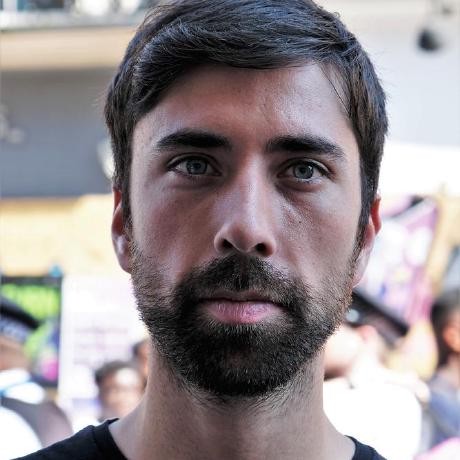
What is your current position?
I am an assistant professor at the London School of Hygiene and Tropical Medicine (LSHTM)
Describe a little about your role.
Most of my time is spent doing research. I focus on development of methodologies to predict drug resistance in the bacteria M. tuberculosis through analysing the genome sequence. Most of my time is spent analysing data, writing software and coordinating research projects. I also have some other duties at LSHTM including supervision of several PhD students and teaching on various master’s level courses at the university.
Briefly describe your journey from LIDo graduation to your current position.
After finishing my PhD, I secured a position as a research fellow at LSHTM. This allowed me to finish some of the ongoing work from my PhD as well as to start developing my own projects. I was awarded funding to hire an undergraduate student for 3 months through the LIDo REP program. This allowed me to develop skills required to run my own project grant, as well as providing the student with experience of working in a research environment. Following this I applied for funding from the Bloomsbury SET programme and managed to secure 30k of funding. This was used to run a project aiming develop a web-platform to automate collection and processing of pathogen sequencing data. Most recently, I was promoted to Assistant Professor at LSHTM.
What do you love most about your job?
I guess the thing I most love about the job the diversity of people and cultures of I am routinely exposed to through my research. I have gotten the opportunity to travel to our overseas collaborators in South America, Asia and Africa and to teach and learn. Being able to travel that while doing a job I love makes it all worthwhile. I also really appreciate its flexibility. As my work is mostly computational, I can do it from pretty much anywhere at any time. This means you don’t necessarily have to plan everything around a 9 to 5.
What parts of the LIDo programme had the strongest impact on you and your career ambitions?
PIPS was quite important for me. I worked as a data scientist at a large financial institution. It gave me a completely different perspective on how research is run in a non-university environment and has given me new ideas on how I would like to run my own research in the future.
Share your best LIDo memory.
I really enjoyed the first LIDo retreat. It was nice seeing familiar faces, discussing our research and socialising till the late hours.
What advice would you offer to current/future LIDo PhD students?
If you encounter problems during your PhD or need advice, don’t struggle through it alone. Never underestimate the help you can get from your colleagues around you. Most researchers will more than happy to help out or give advice. If there are opportunities to socialise, make use of them! It is always useful to network.
What comes next for you?
I would like to further develop my research interests and try carving out a niche for myself. To do this I’ll need funding, so there will be a lot of applying for fellowships and grants.
What is your current position?
I work for the Royal Society of Biology (RSB) as a Senior Science Policy Officer. The RSB acts as a single unified voice for biology: advising Government and influencing policy; advancing education and professional development; supporting members, and encouraging public interest in the life sciences. The Society represents a diverse membership of individuals, learned societies and other organisations.
Describe a little about your role.
I am responsible for providing input and delivering a portfolio of activities focusing on policies linked to scientists. This includes research funding, research integrity and research publication. Equality, diversity and inclusion (EDI) has also become a large part of my role, and I support RSB’s Diversity and Inclusion Working Group and the Diversity and Inclusion Network. By working with RSB’s CEO, president, board of trustees, committees and staff members, I can assist with planning and implementing a programme of work to pro-actively promote and embed EDI into our current organisational policies, practices and behaviours. Finally, I also focus on disseminating policy news of interest as I publish the Science Policy Newsletter (a weekly round-up of policy headlines and stories to a readership of over 10,000). In addition to managing the RSB Policy Resource Library (a searchable electronic repository of over 800 resources relevant to bioscience policy issues).
Briefly describe your journey from LIDo graduation to your current position.
It has been a steep learning curve leaving academia and jumping into the policy world. After completing my PhD, I knew I still enjoyed science. However, I felt my transferable skills acquired throughout my PhD would be well suited towards supporting, disseminating scientific knowledge and connecting scientists. I enjoy learning about a broad range of scientific topics and explaining them to a range of people (with various levels of scientific understanding). I was also inspired to investigate a role in policy, as my current manager attended a LIDo retreat to promote diverse careers in science whilst I was still a LIDO student.
What do you love most about your job?
I like facilitating open discussions on equality, diversity and inclusion work, connecting and hearing about the work being carried out by RSB’s Member Organisations and working with inspiring EDI groups running exciting initiatives. I also enjoy actively participating and virtually attending external meetings, events and conferences to network and keep up-to-date with activities from the scientific community. For example, before the pandemic, RSB held events with key political figures at the Houses of Parliament and marked its 10th anniversary with a Gala Dinner at the Science Museum in London with Sir David Attenborough and the science minister.
What parts of the LIDo programme had the strongest impact on you and your career?
Although I was initially hesitant to take time out of PhD, the Professional Internships for PhD Students (PIPS) was a fantastic opportunity to explore different career options outside academia.
Share your best LIDo memory.
I enjoyed the Lido retreat. It was an excellent opportunity to network and see the range of exciting projects students were completing.
What advice would you offer to current/future LIDo PhD students?
Grab every opportunity and treat each experience as a chance to acquire a range of personal and professional transferable skills that can be tailored to multiple career routes.
What comes next for you?
I enjoy the variability of policy work and will continue to build my career in this field.
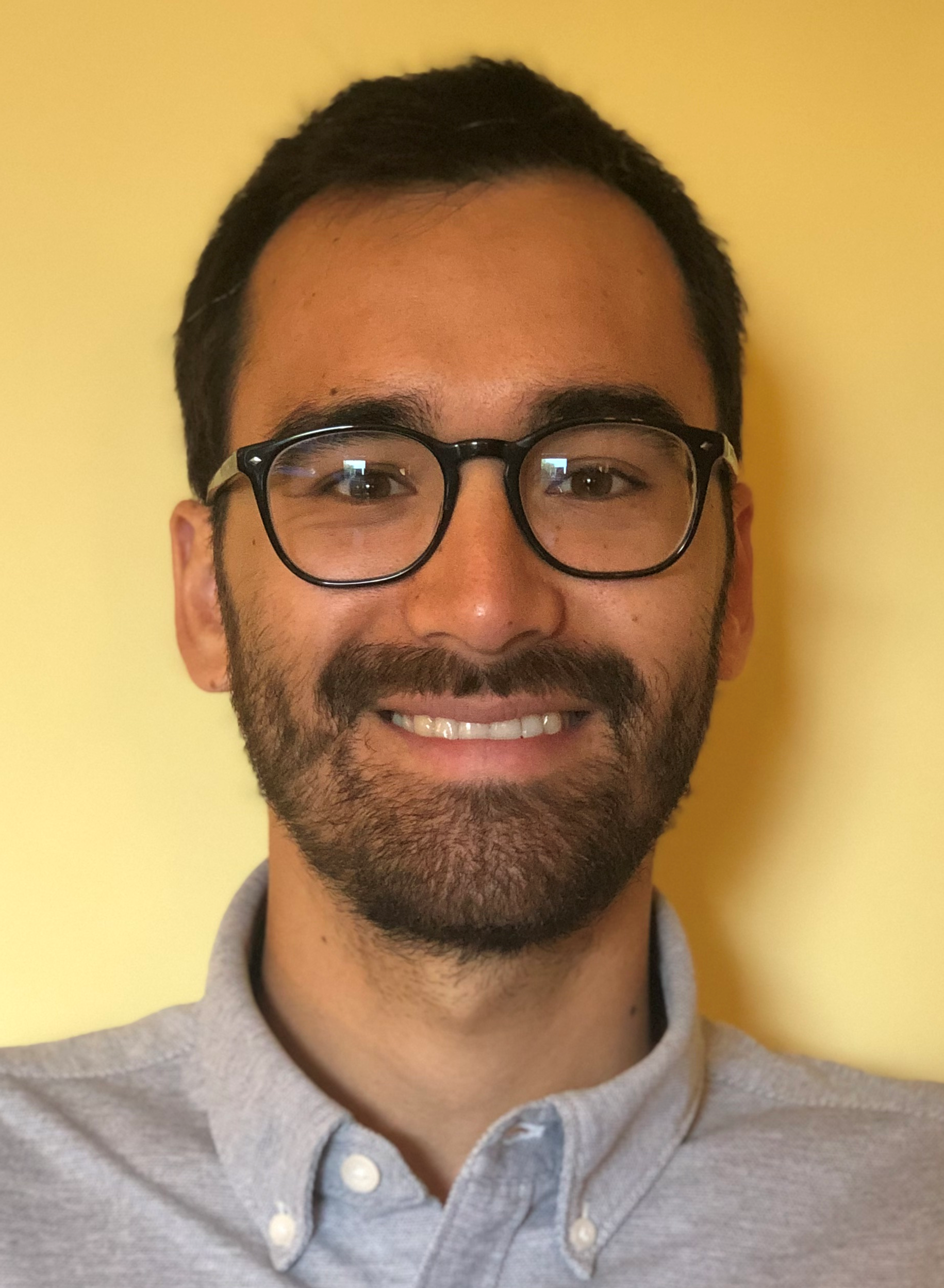
What is your current position?
I am an Investigator in Functional Genomics at GSK.
Describe a little about your role.
I use CRISPR-Cas9 screens to map genes to functions in primary T cells and identify novel targets for drug development programmes.
Briefly describe your journey from LIDo graduation to your current position.
Despite its ups and downs, I love scientific research and after my PhD in cell adhesion biology I was looking for a transition into mammalian synthetic biology. I was set on continuing in academia, but I decided to take a post-doc position focused on chemically-controlled switches in CAR-T cells, which was based in GSK. It turned out to be a fantastic opportunity and allowed me to conduct independent research in the collaborative and resource-rich environment of industry. After one year in the post-doc I transitioned to a permanent role and continued to develop novel technologies to control or enhance the potency of CAR-T cell therapies. Two and half years later, following a re-organisation (a common occurrence in industry) in the Cell and Gene Therapy department, I decided to join the Functional Genomics department in order to expand my skills in engineering and analysing T cells.
What do you love most about your job?
The ability to conduct scientific research in an enjoyable and sustainable manner. This is largely due to the fact that you are always rewarded for quality science, regardless of the result. I also love that I have the space to pursue my own ideas and that I’m surrounded by scientists who are passionate about novel research and publishing papers. I have also really enjoyed working with academia from within industry and I’m currently supervising a University of Oxford PhD student who is expanding upon one of the technologies that we developed in-house.
What parts of the LIDo programme had the strongest impact on you and your career ambitions?
The PIPS programme was such a fun and unique opportunity. I was lucky to secure a placement at a biotech (SGI) in California, which gave me my first experience of research in industry and some excellent contacts for the future.
Share your best LIDo memory.
The late night ‘networking’ at the LIDo retreats will go down as legend.
What advice would you offer to current/future LIDo PhD students?
The most important skills for making it through a PhD are being organised and resilient. With these skills you will have the best chance of enjoying what should be one of the most flexible and creative periods in your life. Make sure to get involved with other activities (e.g. societies, iGEM) and invest time in your social network. These will provide you with some much-needed perspective and beer when everything is seemingly going wrong in the lab.
What comes next for you?
Not sure yet but probably lunch.
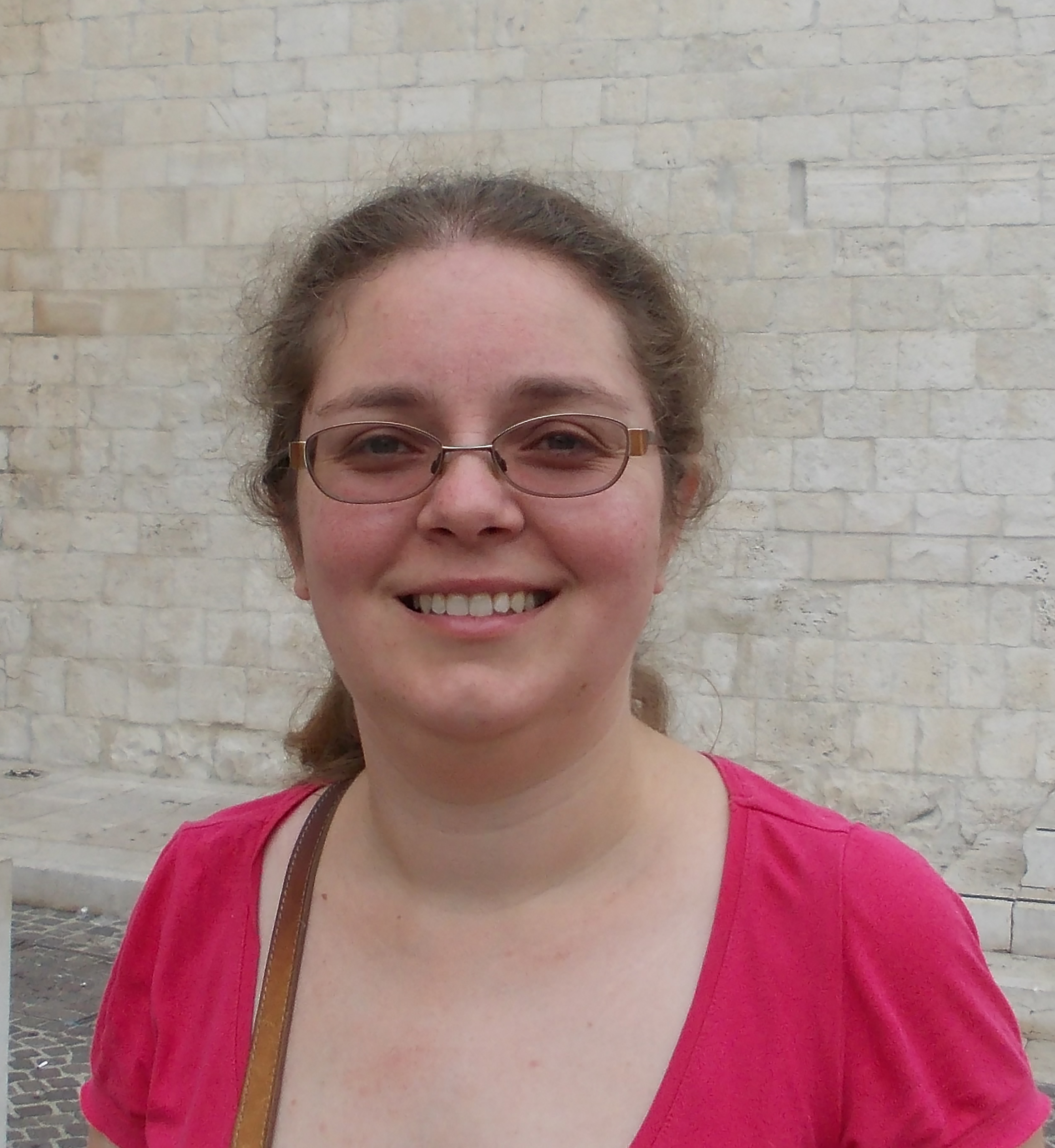
What is your current position?
I am Statistical Genetics Research Scientist in Data-Driven Drug Discovery at Novo Nordisk Research Centre Oxford (NNRCO). NNRCO is innovative target discovery and translational research unit with a focus on identifying novel drug target for cardiometabolic diseases.
Describe a little about your role.
My main focus is harnessing the power of genetics and omics in large population-based cohorts to identify novel drug targets for cardiovascular and cardiometabolic diseases. I develop analyses pipelines and methods, provide genetic support for various wet-lab projects and help with data analyses and study design.
Briefly describe your journey from LIDo graduation to your current position.
After obtaining my LiDo PhD, I worked for two and a half years as a post-doc in the Cardiovascular Epidemiology Unit, University of Cambridge. My project was focused on exploring the role of mitochondrial DNA variants, an understudied part of our genome, in the pathogenesis of cardiovascular and cardiometabolic traits. During my time in Cambridge, I also participated in the Borysiewicz Biomedical Sciences Fellowship that aims to develop strategic leaders ready to pursue a range of global problems related to the UN Sustainable Development Goals.
What do you love most about your job?
The best things about my work are that: 1) I work on many diverse projects simultaneously and can explore different diseases, tissues and models which make my day to day work very interesting; 2) I work within teams of very talented multidisciplinary scientists from both the dry and wet labs. That means I learn new things constantly.
What parts of the LIDo programme had the strongest impact on you and your career ambitions?
Above and beyond the excellent academic training, what was really impactful is that I was exposed to the world outside of academia and realised that there is so much more that meets the eyes and that I can do what I love and am good at in many different settings. All this made it easier to move from an academic to an industry post.
Share your best LIDo memory.
Some of my happiest memories are from the LIDO PhD retreats. The retreats are a great opportunity to: learn about all the cool science that everyone in the programme does; get some good career advice; bond with your fellow PhD colleagues over fun team-building activities and have great philosophical discussions with them till late at night over drinks.
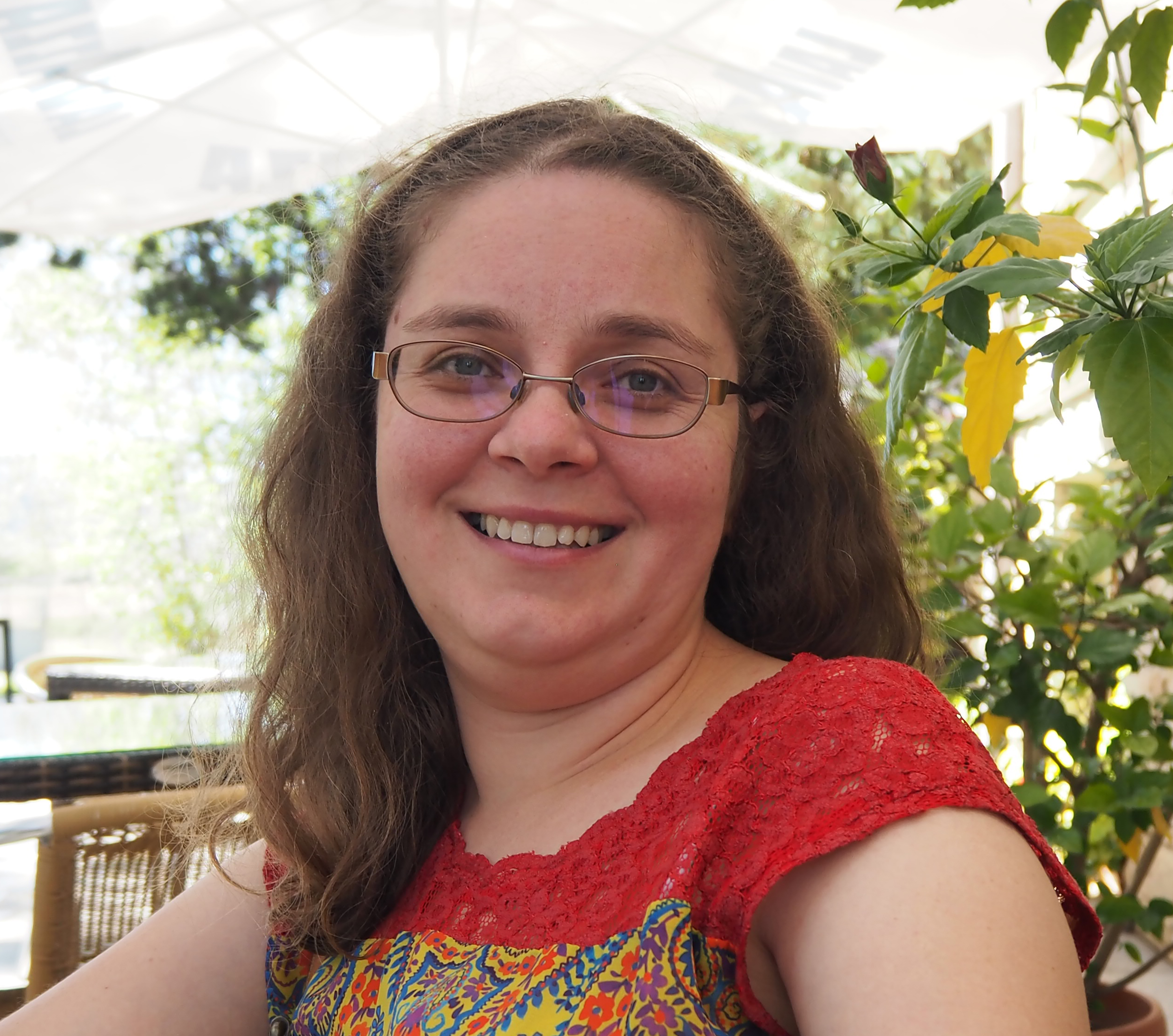
What advice would you offer to current/future LIDo PhD students?
Keep an open-minded and make use of all the great opportunities LIDo will give you to enrich your networks and to learn from people across disciplines and institutions both in an out of academia.
What comes next for you?
I am very new to working in industry, but I am enjoying it as much as working in academia. For now, I want to grow and develop in this new environment and keep on exploring the opportunities the pharmaceutical industry can offer.
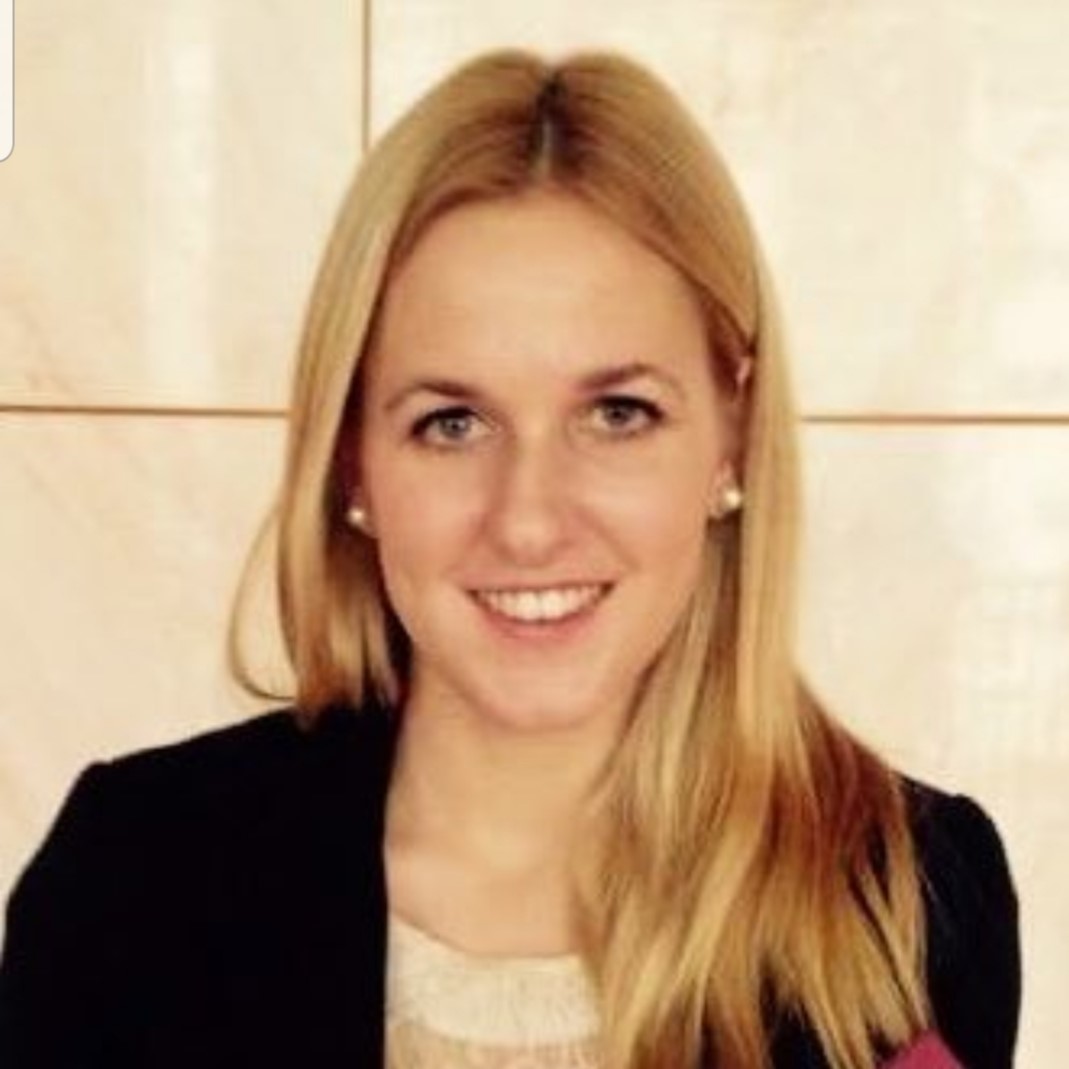
What is your current position?
Technical Officer in the Global TB Programme at the World Health Organization (WHO). I am based at WHO Headquarters in Switzerland.
Describe a little about your role.
I work in the Tuberculosis (TB) Monitoring and Evaluation unit on strengthening TB surveillance and routine use and analysis of data. My work involves carrying out epidemiological reviews and national surveys in countries to inform policy and programmatic action. Most of my time is spent providing technical assistance by reviewing protocols, survey design or performing data analysis. Due to the current situation I am not able to travel, however that is generally also a major objective of my workplan.
Briefly describe your journey from LIDo graduation to your current position.
During the last year of my PhD I applied for this position at WHO which was advertised as part of the Junior Professional Officer Programme. My research was in TB and I had also undertaken an internship at the WHO Country Office in the Philippines as my PIPS during the third year of the PhD. I then joined the organization immediately after completing the PhD.
What do you love most about your job?
I am very passionate about my area of work and I see that as part of the organization you can make a real impact and contribute to improving health worldwide. I very much love travelling and working with countries. Overall my work environment is quite fascinating and multicultural.
What parts of the LIDo programme had the strongest impact on you and your career ambitions?
Clearly the possibility to undertake a PIPS. I found this a unique opportunity to explore career options outside of academic research. As mentioned above, I did mine at the WHO Country Office in the Philippines. This experience allowed me to gain insights into public health work in a country and the organization itself. Besides solidifying my interest and passion for working in this field, I was able to build a network that later supported my application for the current position I have.
Share your best LIDo memory.
My best LIDo memory was the first-year retreat. It was a great opportunity to reflect on the first year and to get to know and bond more with fellow LIDo colleagues. We had some interesting exchanges about research projects, but certainly also a great time socialising.
What advice would you offer to current/future LIDo PhD students?
Developing a high stress and frustration tolerance early on is very helpful. And if things go wrong, there is no point in obsessing over it, but to learn from it and move on. I believe the key to success is good organisation and to keep up the communication with the supervisor to discuss expectations, so everyone is on the same page.
Furthermore, it can appear like the PhD project becomes the centre of one’s life for the time being, but one should ensure keeping an open mind and pursuing other interests as well. From a professional perspective, it is important to build a wider network (e.g. through societies) and to make use of opportunities like the PIPS. From a personal perspective, I would recommend to always set some time aside for other non-professional activities such as sports, hobbies and spending time with family and friends. It is important to find a routine that allows for a good work-life balance that prevents one from burning out.
What comes next for you?
I am very keen to expand my skillset further and widen my network. Once travel resumes, I will hopefully be able to join some country missions again or undertake a short assignment at a country office.
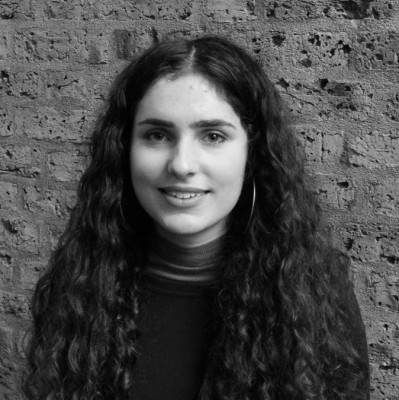
What is your current position?
Bioinformatics Data Scientist at BenevolentAI
Describe a little about your role.
I work for BenevolentAI, where I use my bioinformatics skills to contribute to the mission of re-engineering drug discovery.
Briefly describe your journey from LIDo graduation to your current position.
In my first year after graduating, I undertook a number of roles including teaching coding, a placement in a biotech startup called CC Bio and a short postdoc, before joining BenevolentAI as a Bioinformatics Data Scientist.
What do you love most about your job?
I enjoy the collaborative and open workplace culture, and the possibility of having real impact on people’s lives through drug discovery.
What parts of the LIDo programme had the strongest impact on you and your career?
Aside from my academic experience, my PIPs was fundamental in exposing me to possible careers in industry, specifically in the world of biotech start-ups.
Share your best LIDo memory.
I have fond memories of the Lido retreats, getting to know everyone on the program.
What advice would you offer to current/future LIDo PhD students?
Don’t be afraid to try out new things.
What comes next for you?
I hope to continue my career as a bioinformatics data scientist, working with great people and contributing to important work bringing bioinformatics advances to real-world applications.
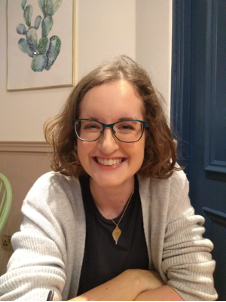
What is your current position?
Science Communications Officer at Alzheimer’s Research UK
Alzheimer’s Research UK is the UK’s leading dementia research charity, dedicated to making life-changing breakthroughs in preventions, diagnosis and treatment. We work to raise awareness of the diseases that cause dementia, tackling misconceptions, confronting fatalism and showing the potential of research to give us all hope of changing the future.
Describe a little about your role.
I work in the Sci Comms team, leading on the generation of content for fundraising teams. This involves writing a wide range of copy from newsletters and blogs to detailed breakdowns of project progress. I’m currently working on an exciting project to communicate our research impact so far.
The presentation skills from my PhD have come in useful. I’ve worked with the public engagement team at festivals, have been a spokesperson for the charity at public meetings, and had my first taste of a radio interview this month. Internally, I train new starters from a variety of backgrounds to help them talk confidently about dementia research, as well as running regular sessions about the different research we fund.
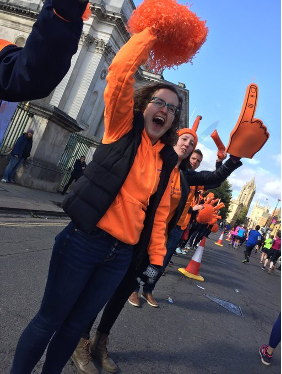
Briefly describe your journey from LIDo graduation to your current position.
Following a short research position in my PhD lab to tie up loose ends, I spent a year in Japan working at the RIKEN Center for Biosystems Dynamics Research as a post-doc.
The Wang lab looks at the role of biomechanical forces in early Drosophila development. I worked to introduce optogenetics into the lab to explore the processes controlling how the fruit fly embryo is shaped.
During my post-doc I co-authored a paper. I loved getting my hands dirty doing experiments and data analysis, but my favourite part was working out the best way to communicate the research clearly and concisely.
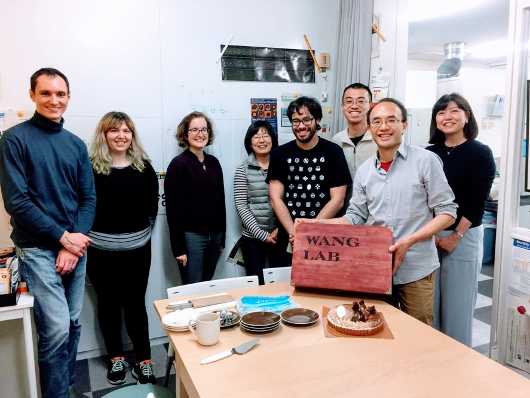
I needed to return to the UK earlier than planned to be close to family. I decided to switch roles as I’d always loved the communications work I’d done as a scientist, and wanted to try it as a full-time job.
What do you love most about your job?
I can still get excited about science! I get to spend time learning about the incredible research our scientists are doing, and figuring out the best ways to talk and write about it for different audiences.
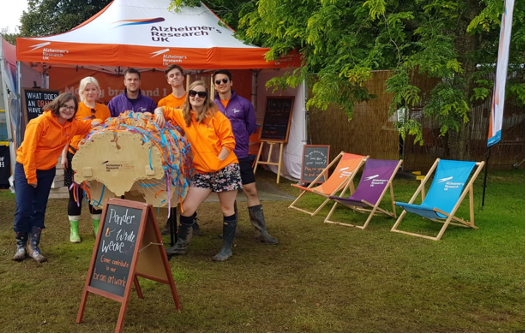
What parts of the LIDo programme had the strongest impact on you and your career ambitions?
The Professional Internship for PhD Students (PIPS) placement had a big impact. I went to the Science Museum and trained in public engagement and science communication.
My favourite moment was seeing the content I’d developed about a ‘SkinSuit’ worn by astronauts on the International Space Station on display. I still have the part of the exhibit at home!
Share your best LIDo memory.
The retreat was a yearly highlight and a fantastic opportunity to get to know other students on the programme and their research projects. There was always lots of time for socialising!
What advice would you offer to current/future LIDo PhD students?
Take opportunities when you can – whether it’s taking part in (or organising!) conferences, working with collaborators, learning on training and development courses, or finding an interesting PIPS opportunity – do what excites you and don’t be afraid to step out of your comfort zone.
I spent a few months working in a collaborator’s lab in Austria, flew to America for a conference after winning a poster prize, and attended a Developmental Neuroscience course in Japan. The course played a huge role in my decision to do my post-doc out there. Collaborations forged online and virtual conferences can still lead to opportunities.
Good communication is key - whether you plan to stay in academia or move onto another career path. Being able to communicate your work to a wide range of audiences can be important in many contexts, from securing funding for a brilliant idea to expanding a network of collaborators to securing your next position.
During your PhD, you could take the chance to volunteer for projects like the Brilliant Club, Access Project, or Pint of Science. Engaging with the public is a great way of improving your communication skills and taking a break from lab work.
Honest feedback is invaluable – take it whenever you can!
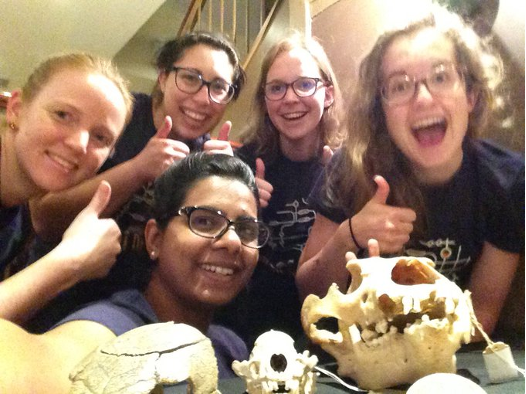
What comes next for you?
The last six months have seen a huge shift in the way that medical research charities operate. In the immediate future, I’ll be working alongside colleagues to adapt our messaging and find new ways to engage with our supporters, researchers and the wider public.
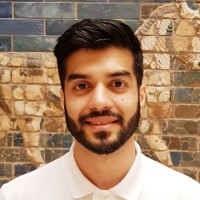
What is your current position?
I am a Research Associate at the Randall Centre of Cell and Molecular Biophysics in Kings College London.
Describe a little about your role.
My research interests include investigating the molecular mechanisms of pathology in respiratory epithelial cells and the application of 3D cell culture technologies into preclinical studies. I am also interested in respiratory epithelial stem cell differentiation via air-liquid interface culture and novel complex 3D in vitro model development.
Briefly describe your journey from LIDo graduation to your current position
I began my DCDF role directly after completing my LiDO programme. The DCDF is a knowledge exchange internship scheme. I started my research associate position shortly after that.
What do you love most about your job?
I learn something new every single day!
What parts of the LIDo programme had the strongest impact on you and your career?
My research with my industrial partner GlaxoSmithKline, was a very insightful learning experience.
Share your best LIDo memory
All the evenings out with the cohort after our Bioindustry sessions in my first year! They were always brilliant fun!
What advice would you offer to current/future LIDo PhD students?
Try to not decline professional development opportunities because you are busy with lab work. They’ll always be experiments to run, but if you commit to other positions of responsibility/leadership, you’ll find that you do have time for them.
What comes next for you?
Hoping to continue my research in the coming years
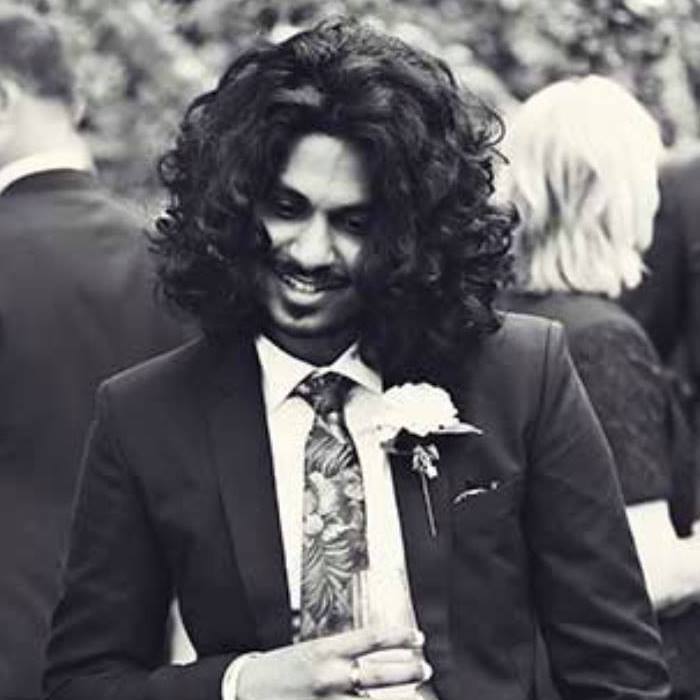
What is your current position?
Post-doctoral research fellow
Describe a little about your role.
I am a neuroscientist working in the UCL Queen Square Institute of Neurology. My role involves the investigation of different epilepsy-related disorders in in vivo models. My work primarily surrounds the development/testing of new graphene-based electrophysiological recording devices, and their combined usage with imaging tools to probe seizure dynamics. Moreover, we are concurrently developing new analysis tools to process this data and provide novel insight into electrical brain recordings.
Briefly describe your journey from LIDo graduation to your current position.
I was awarded a BBSRC DCDF fellowship to allow me to explore new ideas developed during my PhD. This time was very productive and allowed me to generate new pilot data to support independent fellowship applications.
What do you love most about your job?
I enjoy the diversity of tasks required on a day-to-day basis. No day is ever the same and I continue to learn and develop as a scientist.
What parts of the LIDo programme had the strongest impact on you and your career?
The research environment I work in and the people I met. The access to cutting-edge technology and experts in diverse fields has allowed me to learn many diverse skills.
Share your best LIDo memory.
Many! The diverse interactive workshops and the interactions with many different young researchers working in many different fields.
What advice would you offer to current/future LIDo PhD students?
Enjoy, and talk to as many people as you can- everyone can teach you something.
What comes next for you?
We have recently applied for further funding to develop novel tools and therapies to understand and treat neurological disorders. I look forward to working on these projects. Thanks for the support!
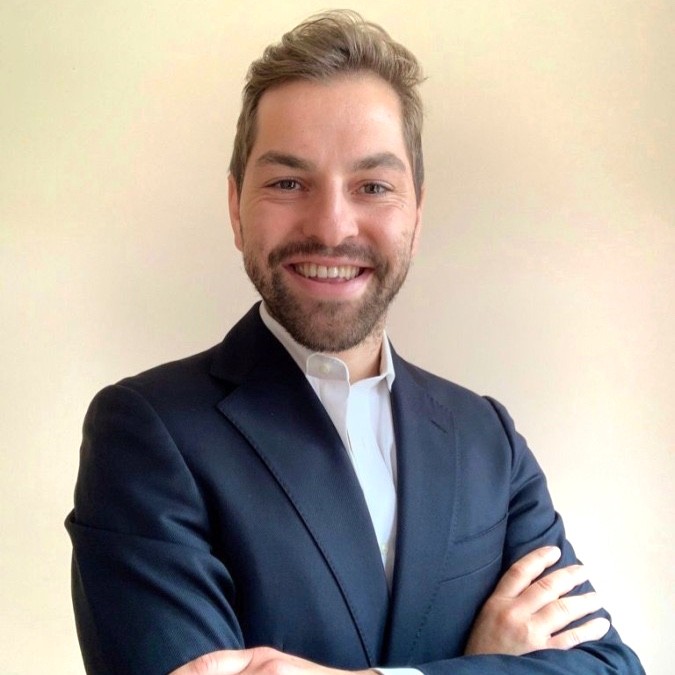
What’s your current position?
I am a Senior Consultant at Guidehouse, management consultancy firm specialising in biotech, pharma and medtech.
Describe a little about your role
I support pharma and biotech companies to plan, develop and execute the commercial strategies for their medicinal products. To support the aforementioned activities, I undertake primary and secondary research, lead teams activities, client interactions and business development opportunities.
Briefly describe your journey from the LIDo graduation to your current position.
After my PhD viva, I was awarded a prestigious grant to conduct a Postdoc at The Francis Crick Institute. Subsequently, as I sought to to work on more immediate and concrete projects that could benefit the patients in the short-mid term, I decided to transition into consultancy. I begun to work at PA Consulting as a Consultant Analyst where I built the necessary experience to later become a Senior Consultant at Guidehouse where I currently work.
What do you love most about your job?
Every day is different: I worked on several types of projects across a multitude of disease areas, from go-to-market strategy development for a rare disease drug in Asian markets through to launch roadmap and business development opportunity evaluation for early assets in Psychiatry and beyond. Additionally, I love the fact that I work on some of the most important global health challenges and innovative therapeutics worldwide thus giving me the chance to bring solutions to patients who are very much in need of one. And this, ultimately, has always been my driving motivation throughout my career.
What parts of the LIDo programme had the strongest impact on you and your career?
LIDo is a great programme that offers the chance to do research in an academic environment while making you aware of the great variety of working and development opportunities that a PhD can provide. LIDo personally gave me more confidence in my abilities which in turn allowed me to embark in several experiences and challenges outside my comfort zone which were beneficial for my development and future career steps. Surely the PIPs in consultancy helped to make a better case while applying for consultancy positions so overall LIDo provided me with key experiences to be successful in my careers so far.
Share your best LIDo memory
There are really a lot of good memories from my time at LIDo but probably the best one is the first day. I still remember the excitement of starting a new adventure, meeting new people and building my future together with great friends and brilliant minds.
What advice would you give to a current/future LIDo PhD student?
To any PhD student in general I’d say: challenge yourself and get out of your comfort zone. We know what doing research in academia means, and that certainly represents a career path. However, we often don’t fully understand the potential that we, as scientists, have to make a difference in other sectors top by using both our technical and transferable skills. Engage in PhD-unrelated activities like incubators, scientific organisations, charities, you name it. Take time off to undertake an internship if you can. Collaborate with industry labs where possible. These are just examples. To LIDo PhD students, I’d specifically say to make the most of their PIP to explore new career avenues, test their skillset and grow their networks. And always keep in mind, challenge yourself and make sure you are fully focussing on that experience.
What comes next for you?
My long-term objective is to cover a leadership / executive position in the next 10 years. I see myself undertaking such a role either in a consultancy firm or in a start-up but I’m open to other opportunities. However, in the near future, I’m fully concentrated on developing my consulting abilities and broaden my expertise while contributing my technical and transferable skills to bring the next generation medicinal products to patients.

